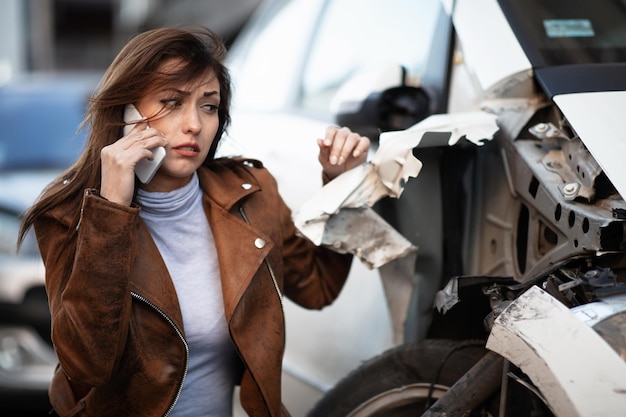In today’s digital age, social media has become a significant part of our lives. However, when it comes to sharing information after a car accident, caution is essential.
According to a study by the International Bar Association, nearly 85% of respondents agree with the use of social media posts as evidence in cases. This makes it crucial to be mindful of what you share online.
In the event of a car accident, protecting your rights is paramount, and this entails both legal representation and cautious social media use. Hiring a car accident lawyer ensures professional guidance throughout the legal process. Mindful posting on social media helps safeguard your case from potential pitfalls and protects your privacy.
Nothing is Private
In our society today, the notion of privacy has become increasingly blurred. This is also true in the aftermath of a car accident. Despite the illusion of control offered by privacy settings, social media posts can quickly become public knowledge, with potential consequences for legal proceedings and personal reputation.
Even seemingly harmless updates or photos can be misconstrued or used against you by insurance companies or legal adversaries. Deleted posts may linger in the digital sphere, accessible to those with the means to retrieve them. This further emphasizes the importance of exercising caution when posting online.
The Risks of Social Media Use After an Accident
While social media offers a convenient way to connect with others, it also comes with significant risks, especially in the context of an accident. Understanding these risks is essential to protecting your rights and ensuring a fair legal process.
Compromising Legal Proceedings
Sharing details about the accident or discussing ongoing legal proceedings on social media can jeopardize your case. Posts admitting fault, assigning blame, or even just discussing the accident’s details could be used against you by insurance companies or opposing parties.
Misinterpretation of Information
Even innocent posts can be misinterpreted or taken out of context. A simple update about your recovery could be construed as evidence that your injuries are not as severe as claimed, potentially impacting your compensation.
Impact on Credibility
Inconsistencies between social media posts and statements made during legal proceedings can damage your credibility. Any discrepancies or contradictions could be used to undermine your case or portray you as dishonest.
Evidence for the Opposing Party
Social media posts, including photos or videos, can serve as valuable evidence for the opposing party. Images from the accident scene or posts showing activities inconsistent with claimed injuries could be used to dispute your claims or minimize your damages.
What to Post and Not Post After a Car Accident
What you post in the aftermath of such an event can have significant consequences for your legal proceedings and personal well-being. Understanding what to post and what not to post is crucial to protecting your rights and ensuring a fair legal process.
What to Post
- Factual Information: It’s acceptable to share factual details about the accident, such as the date, time, and location. Stick to the facts and avoid speculating about the causes or assigning blame.
- Injury Updates with Caution: If you choose to share updates about your injuries and recovery process, do so cautiously. Avoid disclosing sensitive medical information that could be used against you.
- Express Gratitude: It’s appropriate to express gratitude to friends and family for their support and well-wishes. Keep these messages simple and focused on appreciation rather than discussing legal matters.
What Not to Post
- Statements Admitting Fault: Refrain from making statements or posts that could be interpreted as admitting fault or assigning blame for the accident. Even seemingly innocent comments can be misconstrued and used against you.
- Do Not Discuss Legal Proceedings: Avoid discussing ongoing legal proceedings related to the accident on social media. This includes details of settlement negotiations, court dates, or conversations with your lawyer.
- Keep Accident Scene Photos/Videos Private: Resist the urge to share photos or videos of the accident scene on social media. These images could be misinterpreted or used by the opposing party to dispute your claims.

